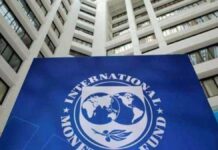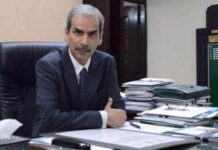
ISLAMABAD: The International Monetary Fund has demanded the implementation of a free-float exchange rate mechanism and providing estimates of inflows and outflows linked to China-Pakistan Economic Corridor (CPEC) projects.
Three major sticking points have emerged in ongoing negotiations between Pakistan and the International Monetary Fund (IMF) which include an increase of 22% in power tariff, free float exchange rate mechanism and sharing full financing details of CPEC projects.
The IMF has sought full disclosure of all the financing details regarding CPEC projects with projected inflow and outflow figures for a number of years, reported an English daily.
According to a report by a foreign media outlet last week, the country’s debt repayments to China are due from next year, starting from $300 million and slowing rising to touch $3.2 billion by 2026.
This disclosure has been made by a senior Finance Ministry official, who is part of the ongoing talks with the IMF, on the condition of anonymity.
According to the senior official, the amount of the bailout isn’t the sticking point but the conditions which aren’t acceptable to the government.
The official said no government can accept the proposal of a free-float exchange rate mechanism considering the existing state of the economy since it could lead to hyperinflation.
Also, the demand to raise power tariffs across the board by 22% could heavily impact the disposable income of the poor and hike input costs for Pakistani products, making them even more uncompetitive in the global market.
Adding to the deadlock with the IMF is the inability of the government to disclose CPEC details without permission of China, which is the third friendly willing to provide assistance in the current economic crisis, he said.
According to Advisor and Spokesman Ministry of Finance Dr Khaqan Najeeb, the issue of exchange rate never came under discussion during recent discussions with the IMF and it had provided no commitment to the exchange rate target.
He added that both sides are in deliberation on every issue and discussions are concentrated on what procures to implement for putting the economy on a path of macroeconomic stabilization, structural reforms and fiscal consolidation.
Mr Najeeb echoed the statement given by Finance Minister Asad Umar earlier this month that CPEC project details had been shared with the IMF.
Moreover, the spokesman said Pakistan was devoted to bolstering its revenue collection and wasn’t due to the IMF but was always amongst the government’s foremost priority.






